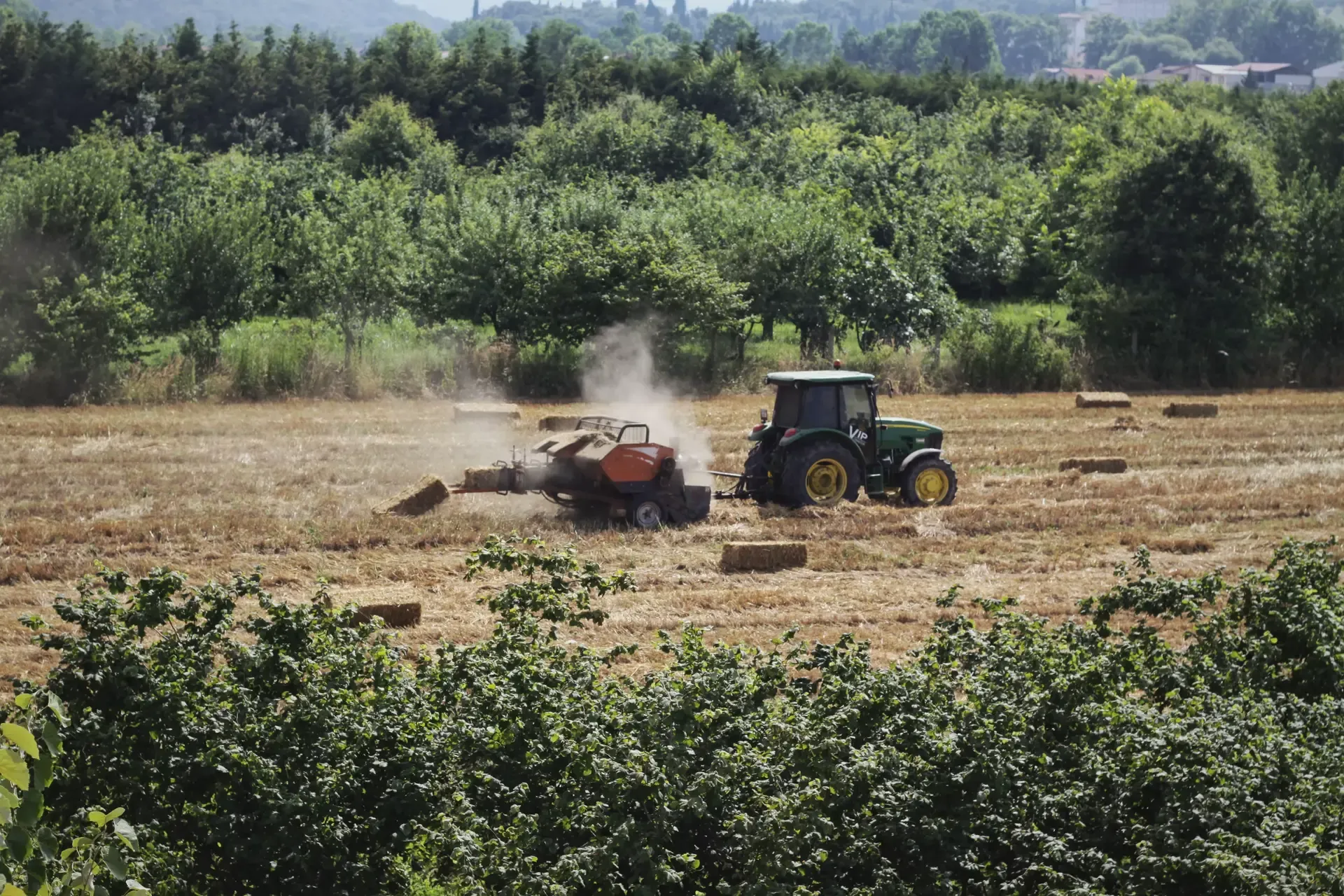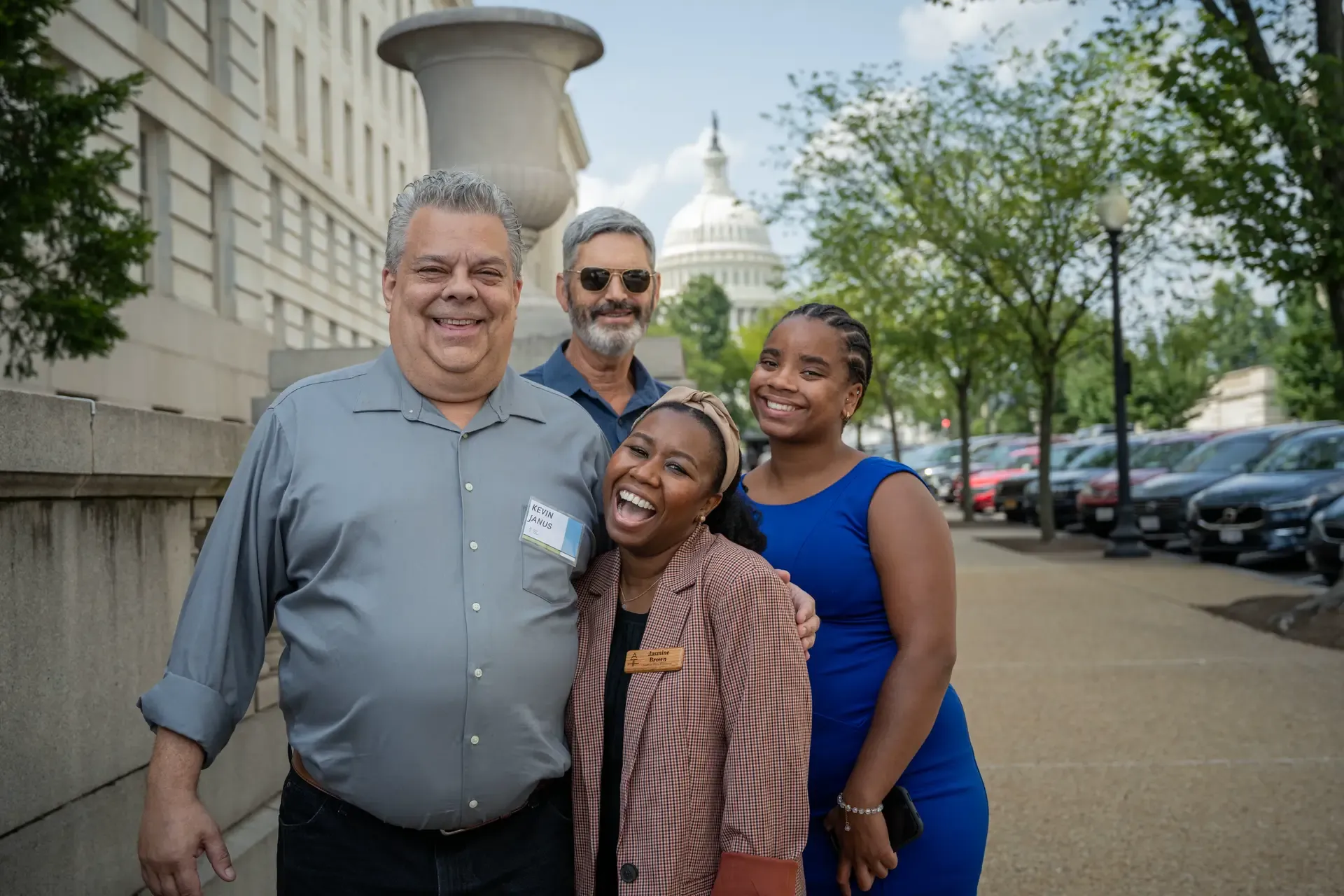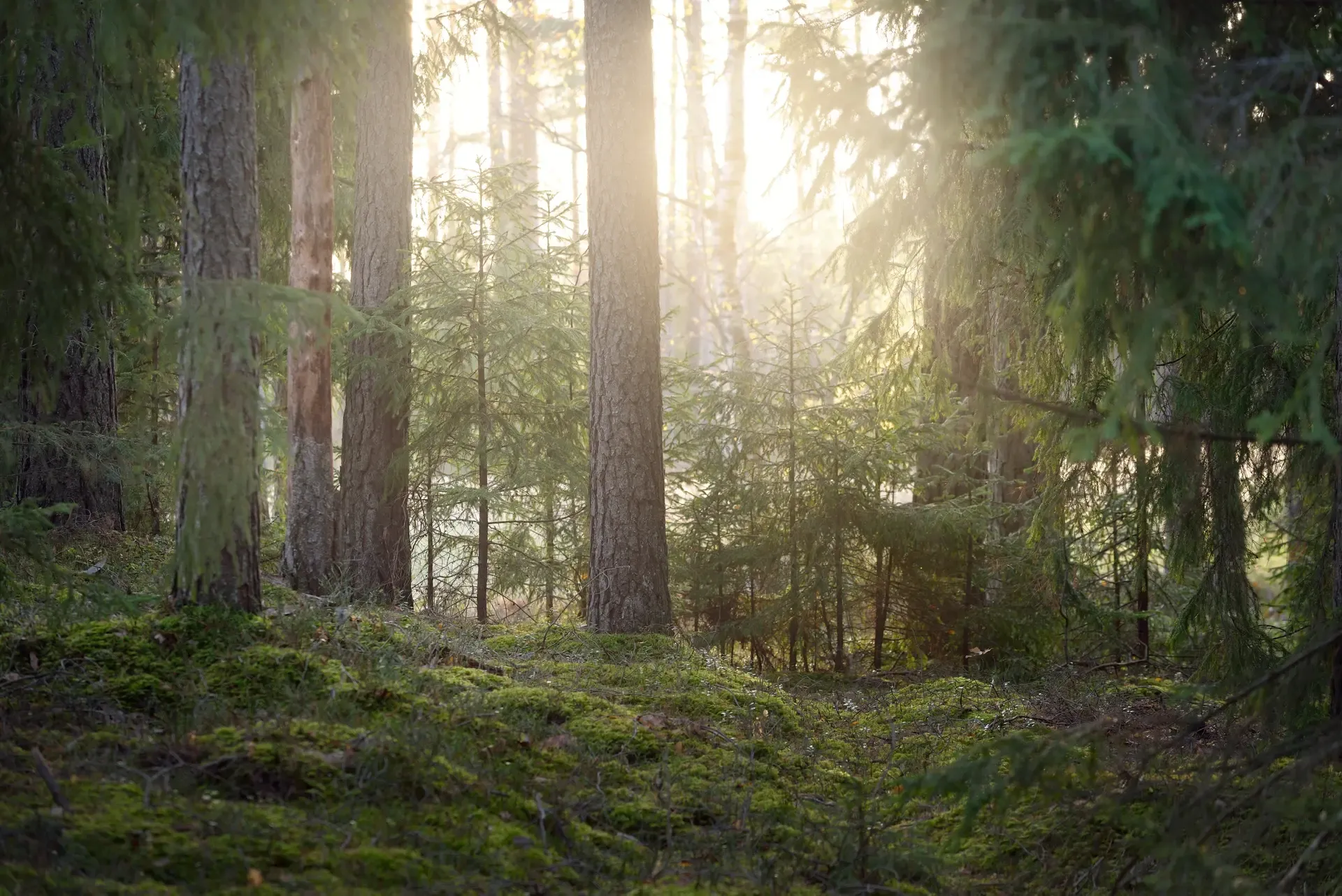The Rural Forest Markets Act: Bringing the Power of Private Finance to Rural Landowners

Pathway through a foggy forest at sunrise.
In the United States, family forest owners are 21 million strong, owning upwards of 290 million acres of our country’s forests – making them the largest ownership group of woodlands. They want to do what’s best for their lands, families, and communities. But far too often, rural Americans are denied the tools needed to maximize their impact on our forests and the planet. Enter the Rural Forest Markets Act (RFMA), bipartisan legislation that would help these landowners access new economic opportunities and equip them to improve the health and value of their forests, all while fighting climate change.
The Challenge – and the Opportunity
The voluntary carbon market, a global financial market in which private actors buy and sell credits representing certified removals or reductions of carbon from the atmosphere, provides a massive economic opportunity for rural family forest owners. And the opportunity continues to grow; the value of the carbon market increased from just $282.3 million in 2019 to a massive $2 billion in 2021.
We knew that forested land was helpful in terms of reducing carbon dioxide and generating oxygen, but it wasn't instinctive to think of our small forest as making an impact on carbon sequestration. A network of forests like ours could collectively make a big difference! - Hap Whelpley, FFCP-enrolled landowner
This explosive growth in demand not only means that small landowners could make a significant impact on global climate action, but also means we could unlock billions of dollars in funds for family forest owners to care for their lands. In fact, the voluntary carbon market alone could generate as much as $5.6 billion in private dollars that could support rural economies if carbon markets were open to small forest owners.
But why isn’t this already happening?
Unfortunately, family forest owners are often locked out of participating in the voluntary carbon market. As of 2019, the vast majority of small-forest owners were unable to participate in a carbon project. High upfront costs, market complexity, and lack of technical support has made it historically nearly impossible for these landowners to access the massive opportunity of these projects. Failing to unlock carbon markets for family forest owners means leaving them out of income opportunities that could fuel stronger rural economies and healthier forests.
In recent years, there have been more efforts to reach small landowners with projects they can access and participate in to support their lands and their families. Programs like the Family Forest Carbon Program (FFCP) provide technical and financial support for landowners to implement sustainable forest management practices that help capture and store additional carbon from the atmosphere. And the private sector has noticed; FFCP has secured nearly $54 million from corporate buyers, which has enabled us to enroll more than 71,000 acres and 480 landowners over three short years.
Carbon markets provide landowners with financial incentive to not only keep their forest as forest, but also to help implement management practices that enhance forest carbon and overall forest health. Through FFCP, family forest owners’ connections to their land are enhanced with knowledge and assurance that their forest will remain and continue to provide carbon storage and sequestration for decades. - Addison Kasmarek, Forester and Co-Owner, Greenland Forestry
And yet, landowners still face barriers to entry. A major reason? Market risk.
There are plenty of private actors looking to invest in the voluntary carbon market, thus increasing market access for rural landowners. But because the market is so new and many investments are the first of their kind, they carry high financial risk – meaning investors aren’t sure they will get their return on their investment. So, to incentivize private actors to invest in the market for the benefit of family forest owners, we need financial mechanisms that reduce risk. Herein lies the gap between what rural communities need and what the marketplace is willing to do.
How the RFMA Bridges the Gap
The RFMA helps to bridge the gap between the marketplace and rural landowners by bringing the power of private finance from large corporations to rural America to achieve the scale of climate impact necessary to put a significant dent in the fight against climate change.
The Act gives the USDA the authority to issue up to $150 million in guarantees for loans and bonds to unlock market access family forest owners, such as those enrolled in FFCP. The USDA already issues such guarantees for traditional agriculture markets, so the RFMA would expand authorities to nontraditional markets like carbon and water.
The RFMA creates a voluntary incentive option for small landowners to adopt climate-friendly forest management practices to increase the value of the carbon, water, timber, and other commodities that can be sold in a marketplace. In doing so, it unlocks new revenue streams to help them build generational wealth and keep their land in the family, while ensuring the long-term health and value of their forests. It does all of this at no expense to taxpayers.
Expansion of the program, through legislation such as the Rural Forest Markets Act (RFMA), would help more rural communities and small family forest owners—like us—have access to the carbon market, and provide the means to continue to improve our forest’s wildlife habitat and resiliency. - Sandra Breintenach, FFCP-enrolled landowner
What’s Next?
After months of vigorous negotiations, Representatives Chellie Pingree (D-ME) and William Timmons (R-SC) introduced the RFMA on August 30. In the upper chamber, Senators Bob Casey (D-PA), Mike Braun (R-IN), and Debbie Stabenow (D-MI) introduced the legislation on December 5. The next stage will be for it to go to a floor vote to be passed in both the House and Senate.
To learn more about the Rural Forest Markets Act, check out our fact sheet.
Related Articles

August 29, 2023
Rural Forest Markets Act Puts Power in Rural America’s Hands
The legislation opens revenue to bolster rural economies and increase the health of U.S. forests

August 15, 2023
Advocating for Family Forest Owners in 2023
The American Forest Foundation (AFF) hosted its first in-person legislative fly-in since 2019. Landowners came to Washington, D.C. to meet with Congressional lawmakers.

December 5, 2023
Conservation and Policy Groups Celebrate Senate Introduction of Rural Forest Markets Act
Today Senators Debbie Stabenow (D-MI), Mike Braun (R-IN), and Bob Casey (D-PA) announced the introduction of the Rural Forest Markets Act (RFMA) in the U.S. Senate.